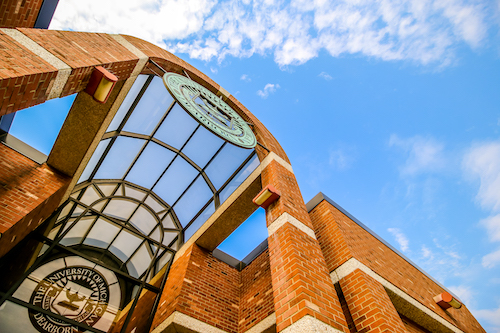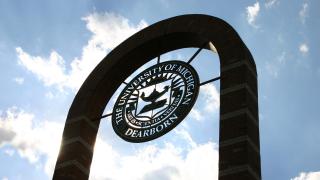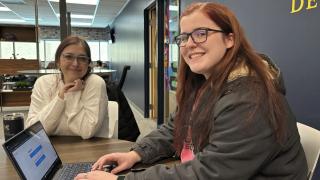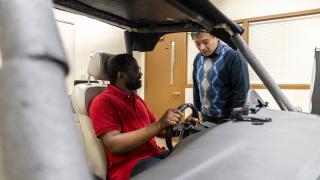For nearly a year, five working groups have been compiling big ideas for how to transform the university for the coming decades. Now, it’s time for you to weigh in. At three town hall forums later this month, the larger campus community will get to sound off about some of the ideas that have risen to the top, ask questions, and share any new ideas. Here’s a little preview of what will happen at the town halls, how to prepare, and links to all the important documents in case you missed them.
When/Where
Town Hall #1: Monday, February 24, 10-11:30 a.m., Kochoff Halls
Town Hall #2: Wednesday, February 26, 10:30 a.m.-Noon, Michigan Room
Town Hall #3: Wednesday, February 26, 2:30-4 p.m., Michigan Room
What to do
Register for any or all of the town halls, specify which working group discussions you’d like to be a part of, and list up to three ideas you’d like to explore in those discussions.
What to expect
After a brief introduction from Chancellor Grasso, we’ll get right down to business. The heart of each town hall will be two 35-minute breakout sessions. For each, you’ll be invited to join in on one of five discussions corresponding to the five working groups: Student Experience and Success; Resources, Structure, Efficiency and Management; Public Prominence, Awareness, Partnerships & Community Engagement; Scholar-Teacher; Staff Development. After the first session, you can rotate into a new group, so you’ll get to explore ideas from two working groups at each forum.
During each breakout session, a facilitator will start with a brief explanation of the key ideas from each working group. The facilitator will then ask the group to weigh in with feedback on each idea, which will be recorded on flipcharts. Here’s specifically what they’ll be asking you to think about:
- How easy/difficult would it be to implement the idea, including thoughts about resources needed and challenges we might encounter along the way.
- What’s the timeline for implementation? Is this something we could start right away? Is it a five-year initiative?
- How big an impact would the idea have? Who would be affected? Is this a permanent thing or does it have a limited scope? What’s the payoff? How good are the chances of success?
- If we implement it, what’s the plan for sustaining it?
- Are there things about this idea that warrant further exploration?
- What are your suggestions for improving the idea?
In addition to reviewing the working group ideas, each breakout session will include (time permitting) a discussion of a few other topics, including: Ways we can improve retention and graduation rates; our current scholar-teacher model; and ideas for new academic degree or certificate programs, especially ones that could address unmet needs in the region.
How to prepare
The best way to prep is to familiarize yourself with the work of the five working groups, or at least the groups whose breakout sessions you plan to attend. Below, we’ve included links to both the working group full reports and their summaries. If this feels like too much information, we recommend starting with the summaries to identify ideas that spark your interest; then find those ideas in the full reports to learn more about them. Each summary report has a few "bolded" items; these items have been identified by campus leadership as key areas for future exploration. In the Reporter e-newsletter this week, we’re also explaining key ideas from each group in two posts. Here’s a link to the first.
Student Experience and Success (Summary) or Full Report Student Experience and Success
Resources, Structure, Efficiency and Management (Summary) or Full Report Resources Structure, Efficiency and Management
Public Prominence, Awareness Partnerships & Community Engagement (Summary) or Full Report Public Prominence, Awareness Partnerships & Community Engagement
Scholar-Teacher (Summary) or Full Report Scholar-Teacher
Staff Development (Summary) or Full Report Staff Development
What happens after
After the town halls, members of the strategic planning teams will organize your feedback and further refine the ideas. After that, the team will start selecting the strongest ideas and begin preparing for implementation.






